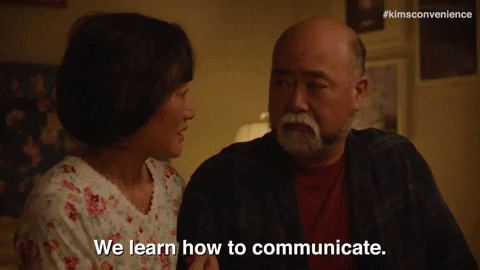People often refer to Emotional intelligence as a soft skill. And while it may be a soft skill, I think it’s one of the most fundamentally important things we can teach anyone. Regardless of age, the line of work, or any other parameter: we all need to understand people better.
In fact, I think every institution of higher learning, whether that be colleges or high schools, should be teaching some thoughtful emotional intelligence classes.
I believe each and every one of us should encounter and know more about emotional intelligence because it gives us a better understanding of the world in general, starting from ourselves.
If we can better understand ourselves and then branch that out to understand others, how much better will our communication be? How much better are our personal and professional relationships going to flourish?
Shocking statistics
Suppose you think you are a good communicator without emotional intelligence. In that case, I have a newsflash for you: only up to 30% of people you communicate with daily speak YOUR language.
Here’s how we all function: we are all a unique blend of traits, which sets us in one of the personality style groups: D, I, S, or C. (Check links on the right-hand side for more information about each style.)
Each of these styles takes up a certain percentage of the human population. The highest one is an S personality style, with up to 30 percent of the population being part of it. That’s why we can deduct that no more than 30 percent of people you talk to every day speak your language.
Communication can get even more difficult if you belong to the D personality style. The human population has only about 10 percent of High Ds, so if you are one of them, every time you open your mouth, you’re going to be speaking in a way that’s not going to work for 90% of the population. That’s a huge number!

The key to understanding others is understanding ourselves
Statistics are there to give us a breakdown of the situation, but we can work on it. Obviously, it is almost impossible to change your personality style (and why would you do it? You are unique and amazing just the way you are.) However, by getting to know yourself, you become more aware of how other people perceive you.
The key to understanding others starts with understanding ourselves. It is essential to know that I view the world a certain way, and I give and receive information through the lens of my view of the world. On the other hand, you have your lens, brought to you by your culture, geographical position, family, religion… you name it. And this diversity of lenses applies to every person on the planet. So, how do you know your message that’s being set out to the world through your lens will be perceived just like you intended it to?

The only answer is self-awareness. To gain it, the first step is taking a personality assessment. It’s not a test, it’s an assessment that will allow you to see to which percentage of the world you belong. It will give you your strengths and blind spots that you’re not even aware of.
You’ll find out why you talk the way you do or behave the way you do. Why do things that motivate others don’t do the trick for you?
DISC assessment, which you can find here, can be done by you, your family, teens, and children… Even for leaders or salespeople specifically (it helps so much in the workplace!)…
It costs less than one month of Netflix, while your results will last a lifetime. It will help give you more self-awareness, which will provide you with more awareness of others and then give you the ability to adapt your behavior to meet others where they are.
Give emotional intelligence a chance, and it will come back to you tenfold.









